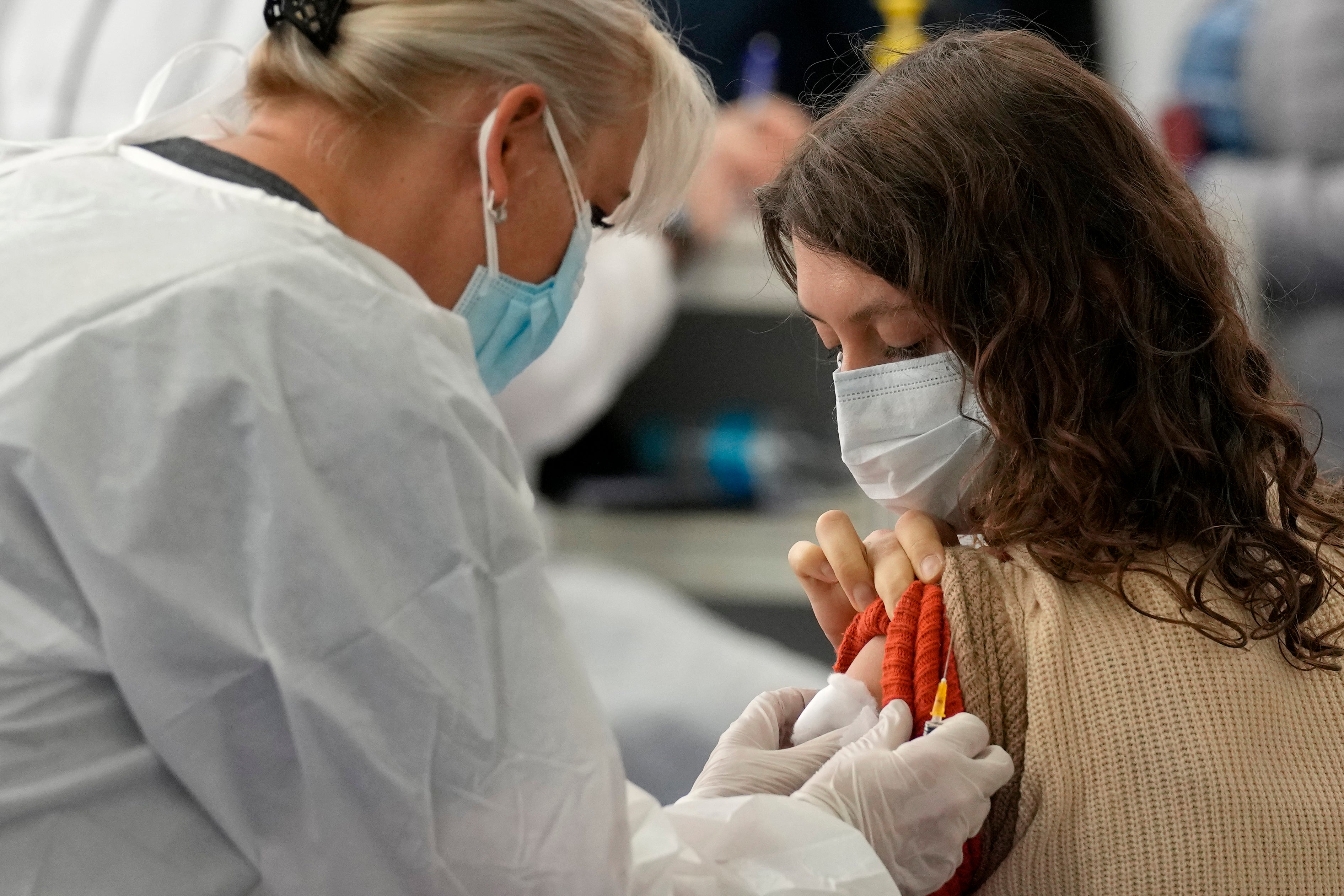New vaccines targeting multiple variants could ‘eliminate’ Covid-19 in the body
New dual vaccines could protect against different Covid-19 variants and be long lasting, new research says

Your support helps us to tell the story
From reproductive rights to climate change to Big Tech, The Independent is on the ground when the story is developing. Whether it's investigating the financials of Elon Musk's pro-Trump PAC or producing our latest documentary, 'The A Word', which shines a light on the American women fighting for reproductive rights, we know how important it is to parse out the facts from the messaging.
At such a critical moment in US history, we need reporters on the ground. Your donation allows us to keep sending journalists to speak to both sides of the story.
The Independent is trusted by Americans across the entire political spectrum. And unlike many other quality news outlets, we choose not to lock Americans out of our reporting and analysis with paywalls. We believe quality journalism should be available to everyone, paid for by those who can afford it.
Your support makes all the difference.A new generation of Covid vaccines could help eliminate Covid-19 in the body and stop the virus “in its tracks”.
Scientists have found a new way to target Covid-19 in the human body using T cells, which are a type of white blood cell and are part of the body’s natural immune response to infection.
The method works by using a different part of the immune system than the current Covid-19 vaccines, which create antibody cells that lock onto the virus and target the “spike protein” individual to each variant.
The research has shown T cells can be activated to recognise “replication proteins” that are created by infected cells in the early stages of infection. These proteins are unlikely to change even in different variants of the virus and so the technology would work equally well against all of them.
The new discovery, by University College London and St Bartholomew’s Hospital, has given scientists a second way of targeting Covid-19. This next generation of vaccines could potentially use both methods to “eliminate” Covid-19 from the outset.
Professor Mala Maini, who led the research, said: “A new dual-action vaccine would provide more flexibility against mutations, and because T cells can be incredibly long-lived, could also provide longer-lasting immunity. By expanding pre-existing T cells, such vaccines could help to stop the virus in its tracks at a very early stage.”
She added: “T cells recognising the virus’ replication machinery would provide an additional layer of protection to that provided by the spike-focused immunity that is generated by the already highly efficacious current vaccines.”
Researchers examined the immune system responses of a large group of healthcare workers who were exposed to Covid-19 during the first pandemic wave. It found a small group of these individuals, who did not test positive for coronavirus, had developed the special T cells that recognise the “replication proteins” found in coronavirus.
Dr Alexander Edwards, associate professor in Biomedical Technology at the University of Reading, who was not involved in the research said: “Once again a detailed immunological study sheds more light into our complex relationship with viruses.
“T cells, white blood cells that play a central role in out immune system, can ‘sniff out’ coronavirus proteins even when buried within the virus particle, in contrast to antibodies that ‘grab hold’ of shapes on the surface.”
He called the study “excellent and thorough” and added: “Insights from this study could be critical in the design of a different type of vaccine.” Many of the current very successful Covid-19 vaccines focus on priming antibodies against the vital spike protein that helps Covid-19 enter cells.
Andrew Freedman, reader in infectious diseases and honorary consultant physician from Cardiff University School of Medicine, said: “This is an important study which may help to explain why some people who were repeatedly exposed to Covid-19 before the vaccine roll-out apparently did not catch it.
“It appears that some of them had pre-existing memory T cell immunity to a protein involved in replication of the virus.
“The existing vaccines, which mainly target the spike protein on the envelope of the virus, have proven remarkably effective. We know, however, that immunity does wane over time and there is concern that we may see new variants resistant to these vaccines.”
Join our commenting forum
Join thought-provoking conversations, follow other Independent readers and see their replies
Comments